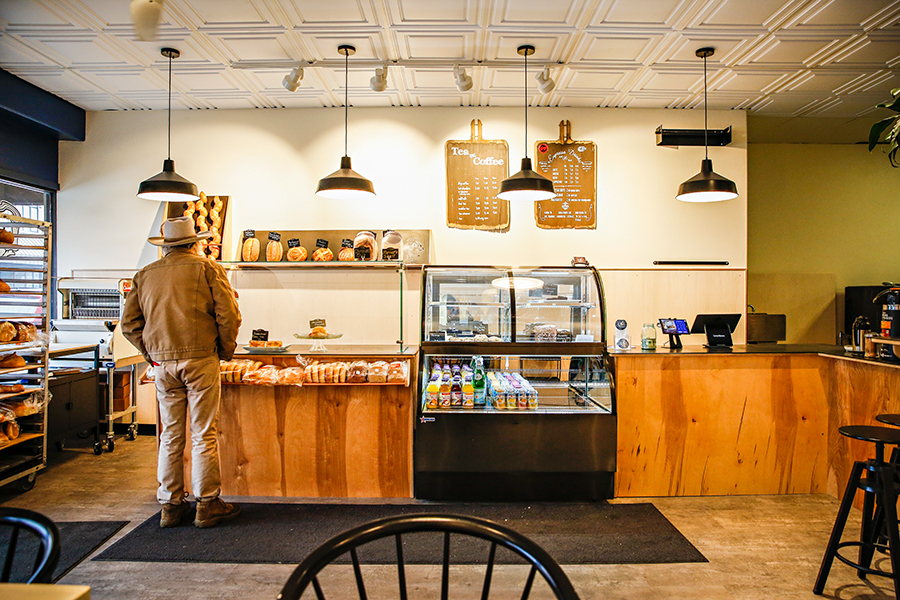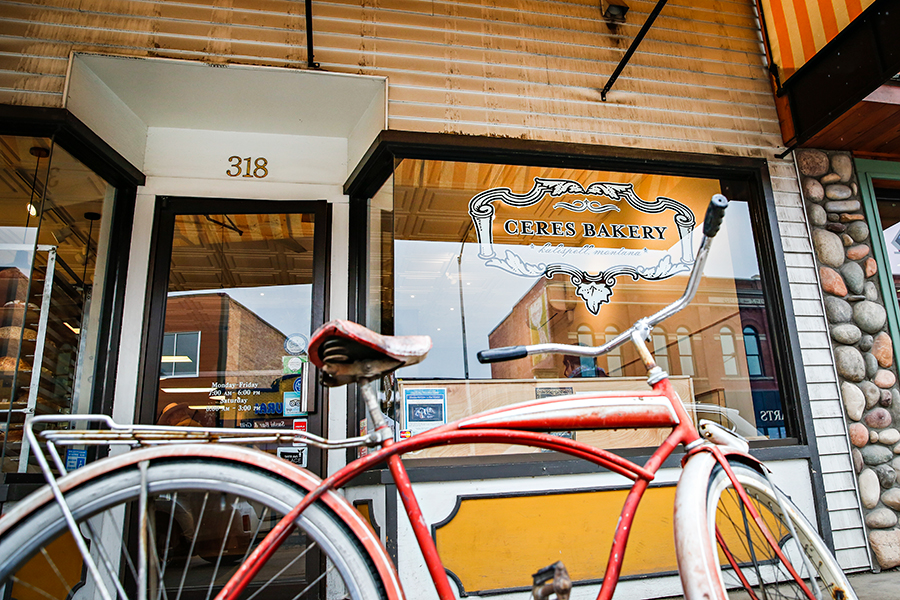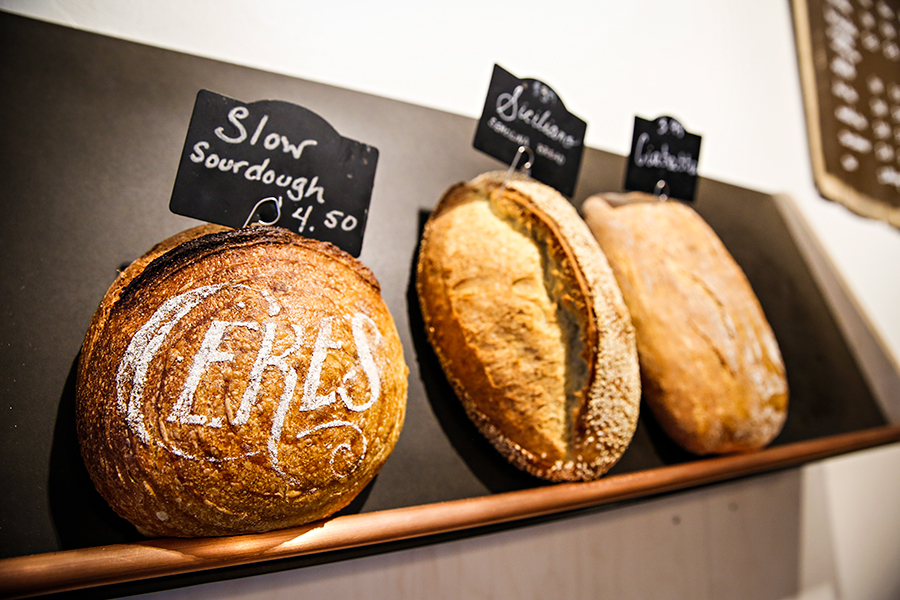Ceres Bakery has been in the same location on Main Street in downtown Kalispell for 14 years, establishing itself as a beloved coffee and pastry shop, as well as a widespread purveyor of delectable baked goods. Its breads, buns and other goodies are available in seven grocery stores and 30 restaurants.
About a year-and-a-half ago, owners Rick Grimm and Hannah Bjornson purchased the building after leasing it since 2006, securing their future firmly in their own hands. More recently, they gave the shop an elegant makeover.
After 25 years as a baker, Grimm is as passionate about his craft as ever, even if these days he does more management than baking, thanks to a talented team of three bread bakers and four pastry chefs, with 17 employees altogether. Here, he discusses Ceres’ evolution and the life of a baker. The interview has been edited for length.
When did you start baking, and what about it drew you in?
I got into baking when I was 19 years old. I just like the craft. I like being on my feet. To me, it’s very satisfying to be part of something that’s hundreds of years old. And for me, it was very challenging. It took me a long time to catch on. Once I got it figured out, I was probably prouder than somebody who caught on quicker … I’ve never been bored baking. Time has never gone slow. I’ve never been staring at the clock. There’s always something to do, which is nice.

Talk about the work hours of a baker. It’s not your typical 9-to-5.
We have people here about 24 hours a day. The pastry crew starts at about 4:30 (a.m.) and they’re done at noon. Then the night bakers come in at 5 (p.m.) and they’re here until about 2 or 3 (a.m.)
At the beginning, it was just me and Hannah, and I was working six days a week. I was coming in around 7 at night: get the bread baked, mix the doughs, form everything. Then I’d take a nap from about 5 to 7:30 (a.m.) and wait for the bread to cool. Then I would bag everything and load up the van and drive around to all of our accounts and I would finish with that around noon. And at noon, I would work the front end and Hannah would take a break and go eat lunch. When she came back, that was my time off. I tried to be asleep by 3 or 4 p.m., which was very difficult. The sun was still shining. It was really hard to sleep. I did that for about 6 months and I started to get burnt out. Then we hired a driver and I just focused on the baking instead of driving and trying to do both.
When you and Hannah launched Ceres 14 years ago, did you have an idea of how it might all play out?
We just grew with the valley and the customers. What do they want? What types of products are they wanting? There was one guy I talked to a long time ago who owned a bakery and he said it’s like riding a lion. You just have to hang on. That’s what we’ve been doing. We’re basically maxed out (for production). We can’t grow much more.
There’s the retail shop side of the business, and then there’s the wholesale side. Can you talk about the growth of the wholesale side? I understand there were a few pivotal accounts along the way, especially Scotty’s Bar.
Karla (Levengood) from Scotty’s came to me and said, “Hey, can you make a burger bun?” I said, “To be honest, I’ve never done it before but I’m sure I can figure something out for you.” I almost said no, but I’m really glad I didn’t because I don’t think we would be here today. That was the start of it. Now we make about 1,500 buns in one shift (for a variety of accounts valley-wide).

Can you talk about the challenges and nuances of running a business dependent upon commodities and their fluctuating markets?
The first year when we opened we were paying about 10 bucks a bag for flour, and within a six-month period it jumped up to 30 bucks a bag. We almost lost everything, tripling our cost. And also doing deliveries, gas jumped over 4 bucks a gallon, and I believe that shot up the wheat market too. We have to also compete against the big boys (such as Sysco). If we jack up our prices too much, we’re going to lose accounts. You can reduce your costs by taking people’s shifts. But we’ve never laid anyone off in 14 years, and we’ve been able to keep people happy. We have a lot of long-term employees.
Small businesses are often labors of love, and when you throw in the odd hours of a baker and the thoroughly hands-on role you and Hannah have played, especially in the earliest years, how have you managed to balance work and home life as parents?
I pretty much sacrificed myself to this place. When (now 10-year-old daughter) Freya started school, that’s when I really had to rethink things because I couldn’t really work at night and take her to school and be a dad. She comes home from school and I’m going to work. It was tough. We had to hire people and cut back on spending so we could afford to pay those people.
As a business owner, you’re a baker at night and then at 9 o’clock in the morning you have to run to the bank or meet the guy at the shop to fix the walk-in cooler. It was hard to do both, and of course 14 years ago I was a lot younger … Most bakery owners, the ones who succeed start when they’re young, in their 20s or 30s, if you look at the numbers. There’s this romantic thing about being a baker, but it’s something you don’t want to start when you’re 50 years old. It’s a craft. It’s a labor of love … Without the customers and employees, we couldn’t have done it.
